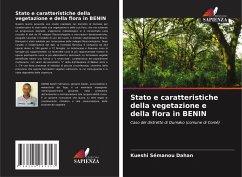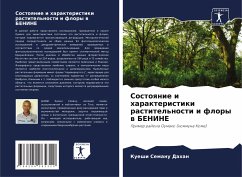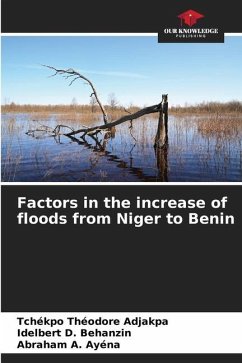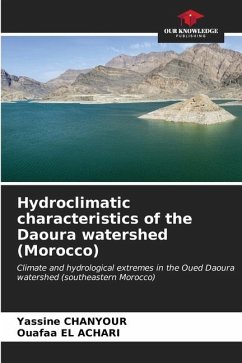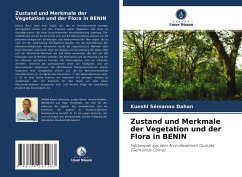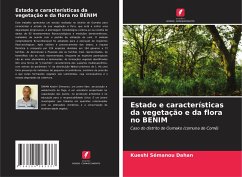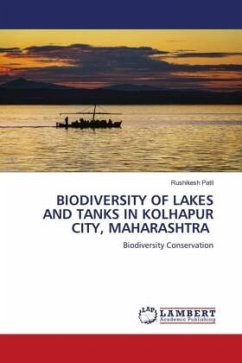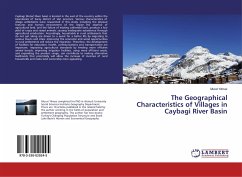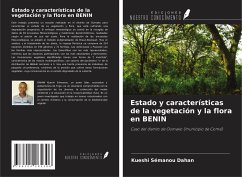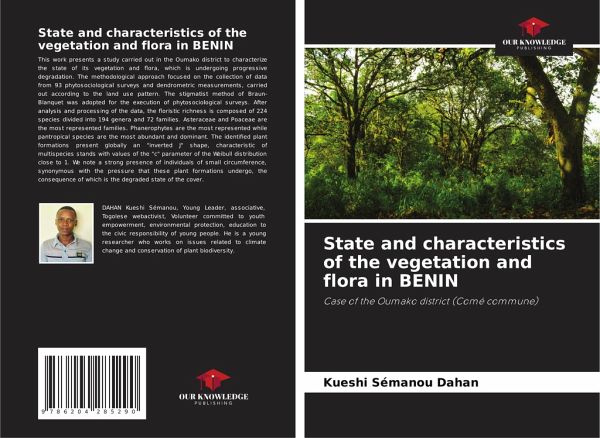
State and characteristics of the vegetation and flora in BENIN
Case of the Oumako district (Comé commune)
Versandkostenfrei!
Versandfertig in 6-10 Tagen
27,99 €
inkl. MwSt.

PAYBACK Punkte
14 °P sammeln!
This work presents a study carried out in the Oumako district to characterize the state of its vegetation and flora, which is undergoing progressive degradation. The methodological approach focused on the collection of data from 93 phytosociological surveys and dendrometric measurements, carried out according to the land use pattern. The stigmatist method of Braun-Blanquet was adopted for the execution of phytosociological surveys. After analysis and processing of the data, the floristic richness is composed of 224 species divided into 194 genera and 72 families. Asteraceae and Poaceae are the...
This work presents a study carried out in the Oumako district to characterize the state of its vegetation and flora, which is undergoing progressive degradation. The methodological approach focused on the collection of data from 93 phytosociological surveys and dendrometric measurements, carried out according to the land use pattern. The stigmatist method of Braun-Blanquet was adopted for the execution of phytosociological surveys. After analysis and processing of the data, the floristic richness is composed of 224 species divided into 194 genera and 72 families. Asteraceae and Poaceae are the most represented families. Phanerophytes are the most represented while pantropical species are the most abundant and dominant. The identified plant formations present globally an "inverted J" shape, characteristic of multispecies stands with values of the "c" parameter of the Weibull distribution close to 1. We note a strong presence of individuals of small circumference, synonymous with the pressure that these plant formations undergo, the consequence of which is the degraded state of the cover.



